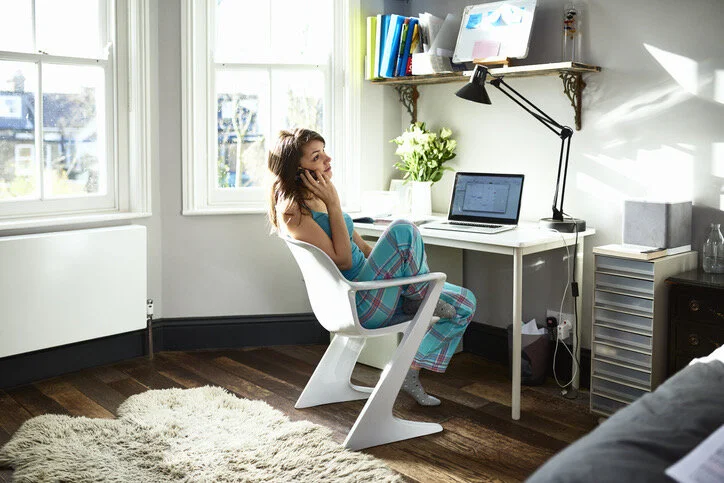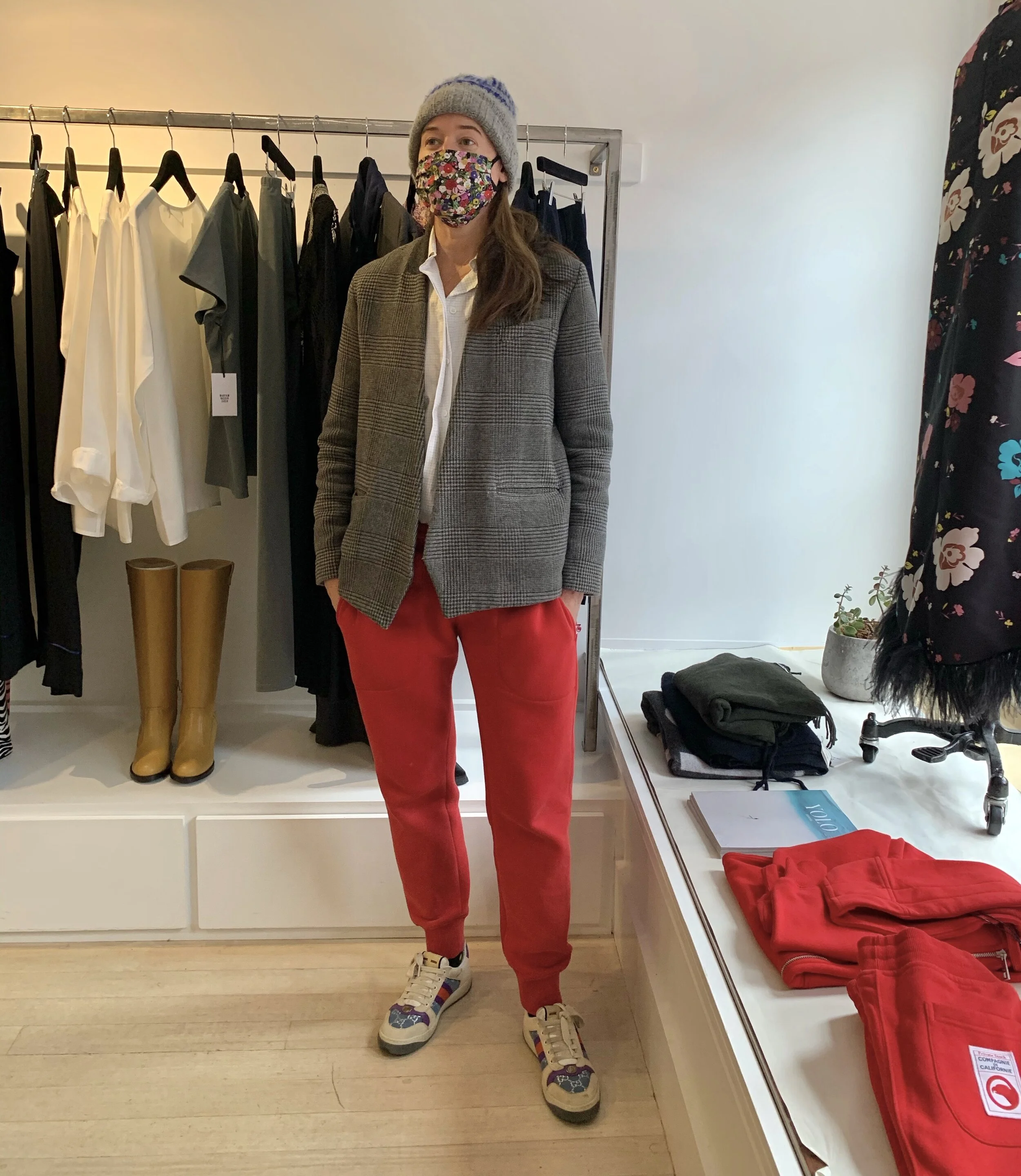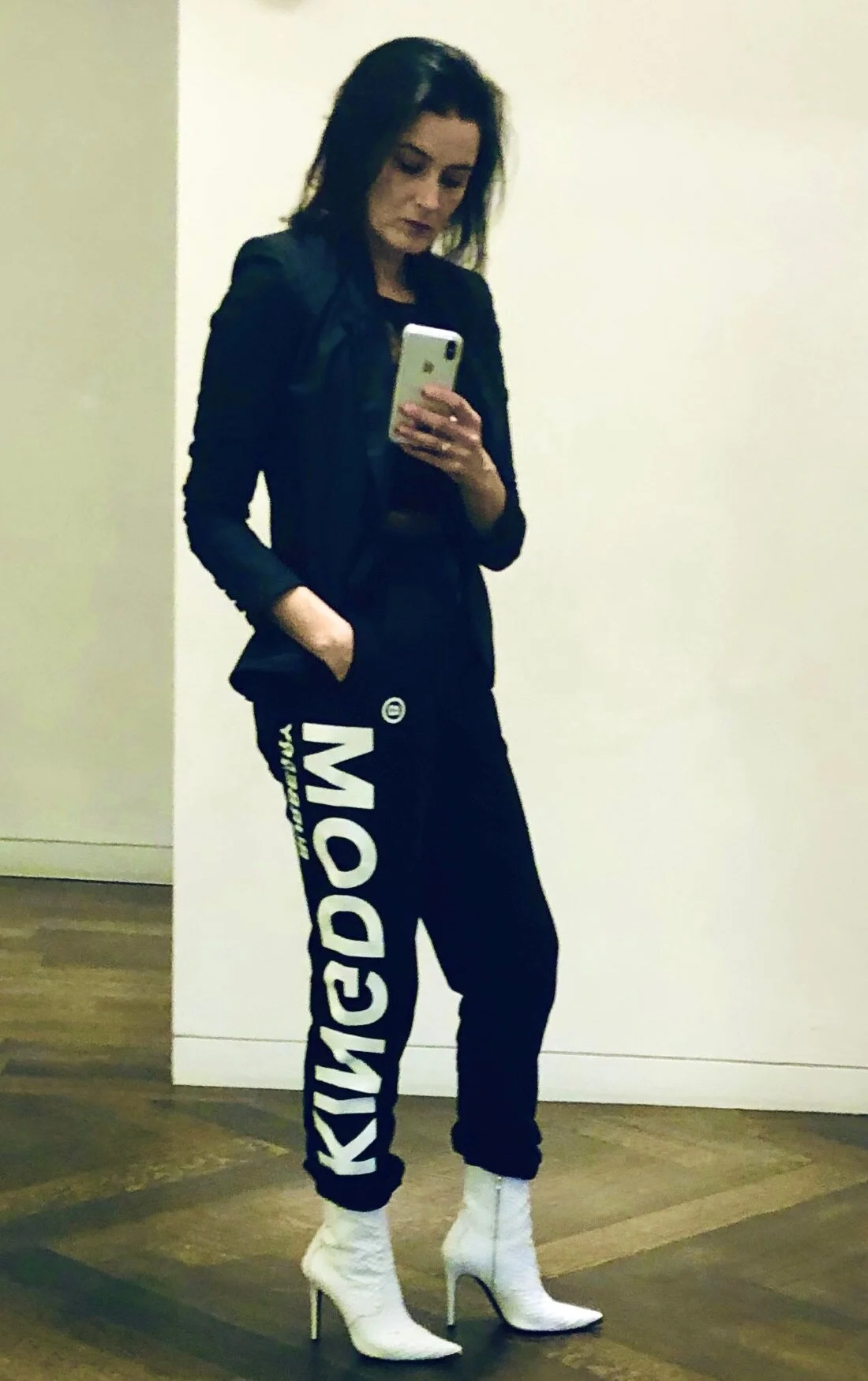Working From Home? Don't Sweat It
Many of my friends are being told they may never go back into the office. Tech giants like Microsoft, Facebook, Twitter and Slack have announced long term work from home plans for some staff. And it’s not just tech - big, traditional companies like Liberty Mutual and REI are also asking employees to work for the foreseeable future from home, and off-loading expensive office space as a result.
This news feels inevitable and unbelievable at the same time; another existential indicator that life on the other side of the pandemic will look nothing like it did before. As John Seabrook noted in his recent New Yorker piece, the decades long adoption of technologies which make virtual work effective, accelerated by the necessity of remote work during the pandemic, has led us to question our most basic assumptions. While remote work didn’t start with the pandemic it has become inevitable during it. So Seabrook asks, “What’s an office for?”
What will the massive increase in remote work mean for those whose livelihoods depend on the old 9-5, those on the front lines of the hunger pangs, sugar cravings, caffeine crashes, parking freak outs and transportation woes that define office workers everywhere?
Will wfh culture get us closer to gender equity? Will flexibility benefit working parents or make work-life balance harder? Will this mean the end of open floor plans which were designed to foster collaboration but also fostered the spread of germs? Will it mean the end of water cooler talk and office romance too?
I have so many questions. We’ll be scrutinizing the consequences of this change for years. But one question keeps weighing on me, and not only because I just ate a pint of Cherry Garcia.
If everyone is working from home all the time, will anyone ever wear anything but sweats?
Sure, sweats are having a moment. It made perfect sense for the last eleven months. The worst year on record deserves the comfiest clothes. When life delivers bad news for months on end, you’ve got to focus on sanity not style. But what about the better days ahead? What about 2021, ‘22 and onward?
If people aren't going back into the office, will they lose their motivation to present themselves professionally? What does professional even look like anymore?
Yeah, Rocky Balboa wore sweatpants for sweating.
Sweats used to be for sweating (see Rocky Balboa). Now, thanks to Lycra and Gortex and Dri Fit, nobody wears sweats to sweat anymore. Now they have a new function: they allow us to sit, comfortably, for hours on end.
Since the pandemic has launched a virtual video meeting revolution, sweats allow us to sit comfortably all day, at a desk, where no one can see us from the boobs down. Thus, endless memes of the Zoom participant in a blazer on top and pajamas (or less) on the bottom. Thus the Japanese company making jammies with a button down on top.
The more I thought about the implications, the farther I took the extreme in my mind. Standards of professional dress would plummet way past casual Fridays to “must wear pants.” Kanye West would be considered a visionary for Yeezy. And, oh God, everyone would show up to the airport in pajamas.
Then I walked into French and Italian on Charles Street and the clouds parted. Owner Aimee Lombardi was standing there in the nattiest outfit and it included sweatpants! Cherry red Compagnie de Californie sweatpants to be exact, and they paired perfectly with her lapel-less blazer and Gucci sneakers. She looked chicer than chic and more professional than Michael, Dwight, Pam and Jim put together on their best day.
Aimee Lombardi, owner of French + Italian on Charles Street, showing us how to look professional in badass sweats. Photo, Coco Hauck.
Daniela Corte, who made headlines recently for dressing Vice President Kamala Harris’ sister Maya for the Inauguration, says there’s no reason to give up style in the name of comfort.
“I’m a firm believer that you should get dressed everyday as if you are leaving your house to meet someone important. It is an exercise in treating yourself with respect… In my experience, everyone gets a spiritual boost when they know they are well dressed and look good. And yes, we can achieve that even when stuck in our homes. This is all about… prioritizing self-care.”
Speaking of the Vice President, author and motivational speaker extraordinaire Mel Robbins reminded me that the Kamala Harris Vogue cover controversy ties into this subject. It “shows that while dressing down may be here to stay, we still judge people when they don’t ‘dress the part’ regardless of what [they may] feel more comfortable wearing.”
“Whether we like it or not,” she explained, “our clothing communicates something, especially when it comes to work.”
Mel Robbins nails casual but professional style on her way to a taping.
For Mel, not traveling constantly has been a bigger change than working from home. “… given that I’m staring back at myself on a zoom camera all day long, I take more time to pull myself together every day for work than I did when I was racing from one city to another to give a speech. I’ve also found that getting ‘dressed’ for work helps me end the work day too and close the laptop. When I leave my home office, I change out of the jeans and back into the loungewear - that means it’s time to relax.”
It’s not so much about sweats per se, or even clothes, but rather the way we present ourselves to the world and what that says about us. Think of the intentional signifiers donned by the domestic terrorists who stormed the capital on January 6th: satanic horns, riot gear, camo, MAGA caps and hoodies with unprintable racist slurs, signifiers of the toxic masculinity and murderous hate that characterized the mob.
There’s lots of science behind this.
Research into what’s been termed “enclothed cognition” and “enclothed emotion” shows that the way we dress really does impact the way we function. Our clothes effect our productivity, whether we are aware of it or not.
Enclothed cognition, which examines the influence that clothes have on psychological processes is part of the larger field of embodied cognition.
The basic premise? Humans think not just with their minds, but with their minds and bodies.
Rachel Cargyle knows how to work the legging into a polished, professional look for home or office.
Dr. Paul Mardsen of London offers up a nice list of research studies here if you want to dig in further.
Rachel Cargle, author, speaker, activist and general inspiration to millions, has always been great at styling a polished yet liberating work from home office look.
Her look says - I take myself seriously. I take care of myself, I am dressed for success today, on my own terms.
Stylist Alisa Neely of Style Scout, who advises many of the most sought after professionals in Boston and around the world, advises that whether remote or in person, “clothing and presentation will always matter.”
As always, Alisa Neely nails the way to make a trend work. On her, wfh style is professional AND sexy.
How has Zoom life impacted clients who are used to living in the spotlight and dressing to impress every day?
Alisa sees many experiencing fatigue after wearing only athletic clothing for the last eleven months. She foresees a shift in the year ahead.
“It won’t be a return to a super formal style, but I think people will be interested in being more creative with their work wear. There will be an obvious focus on beautiful tops and jewelry for women and more creative ways to formalize a track pant.”
“Your mindset changes when you get dressed for the day,” she says. “You switch gears mentally. Your confidence goes up too.”
According to the theory of enclothed cognition, we need to dress our best to feel and be our best. Suit up for the day, put your best foot forward, give it your best shot, you are what you wear. If we really want to beat this pandemic and come out on top, we have to make an effort. Even in an elasticized waist, we need to be intentional.
Dress down culture is here to stay, but it doesn’t mean we’ve given up.
Though companies that employ a high percentage of 20-somethings are experiencing resistance to work from home mandates, many prefer working from home and appreciate the ability to Zoom or crunch numbers in comfort all day. For many, they feel more productive at home.
Brad, who works as an HR consultant for a major insurance carrier from his home office in Providence, says he is equally if not more productive from home, without the long commute to the office in Boston.
“Now you have to be more purposeful with your personal brand,” he says. He notices that the longer people work from home the more care they take to present themselves professionally. But still he remembers a time when everyone had to wear a suit and tie to the office. Those days are gone.
We can’t all rock athleisure like Beyonce, but we can get more creative with our loungewear.
Lizzie Simms, who graduated from Wake Forest in May, works as a financial crimes investigator for Guidehouse. She recently moved from Boston to Manhattan where the company is based, but has no clear indication of when she will ever work in the office. Like many students who graduated into the unprecedented world of 2020 work life, she has no measure of comparison about her productivity, she’s only ever worked from home.
“I can get my work done if I’m in a professional or personal environment; it’s the level of happiness during the work that changes. Of course, I wash my face, brush my hair and teeth, put on deodorant, and put on fresh clothes. But sometimes I stay in my pajamas and I get just as much done. I believe our image should be focused on less and our work product should be focused on more. It removes the superficiality of professionalism and the notion that everyone has to look, act, and resemble a certain mold to be successful.”
In his speech and book, Make Your Bed, Admiral William McRaven emphasized the importance of starting off each day with a small act of self respect.
“If you make your bed every morning, you will have accomplished the first task of the day. It will give you a small sense of pride and it will encourage you to do another task and another and another. By the end of the day, that one task completed will have turned into many tasks completed... If you want to change the world, start off by making your bed.””
After you make your bed, decide how to present yourself so you can be your BEST for the day. We each have to find what drives us to meet our potential. Just don’t show up at the airport in pajama bottoms.
Daniela Corte summed it up well. She told me, “The key is to never give up. Pretend you are bumping into someone you have not seen in 20 years; how do you want to look?”












